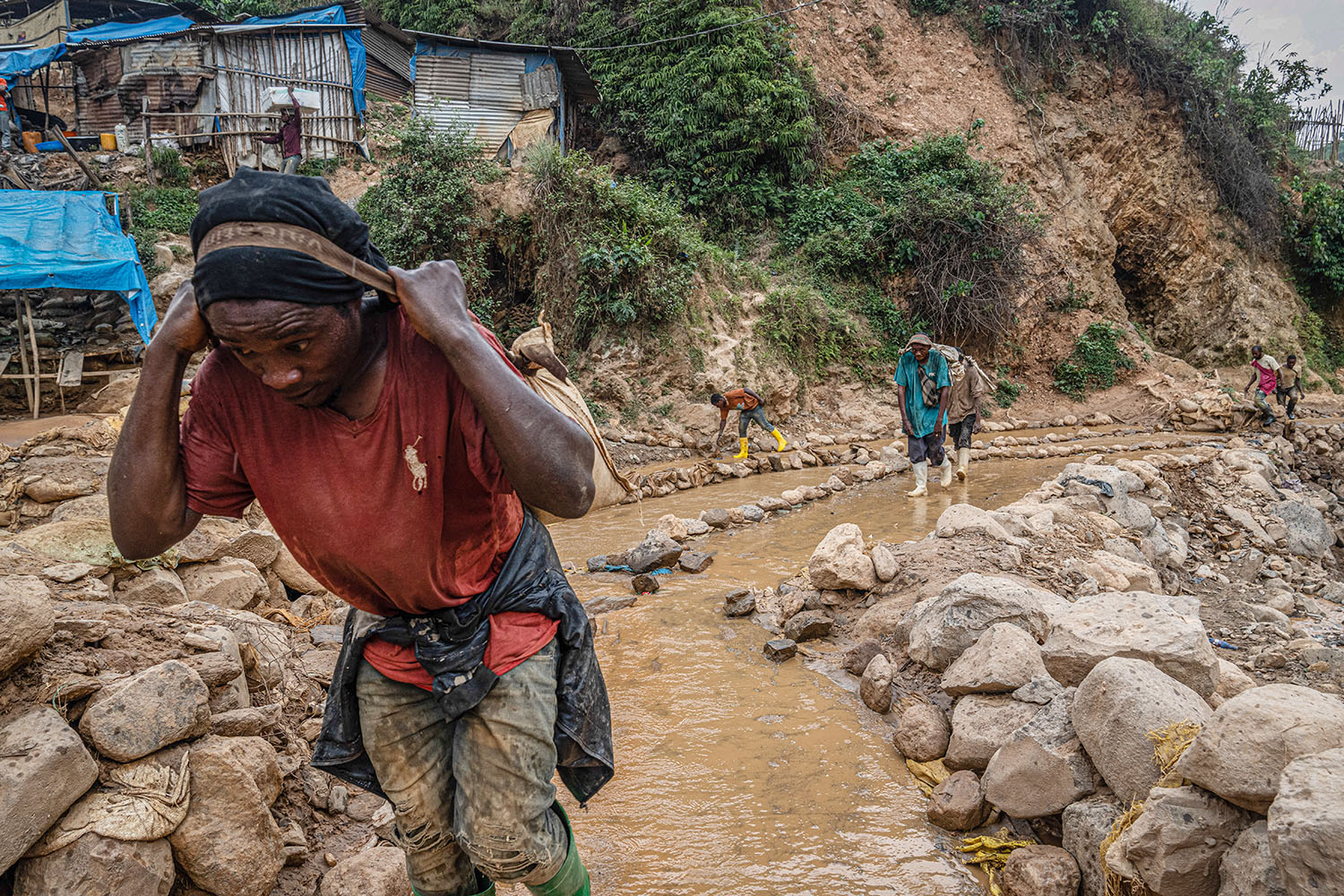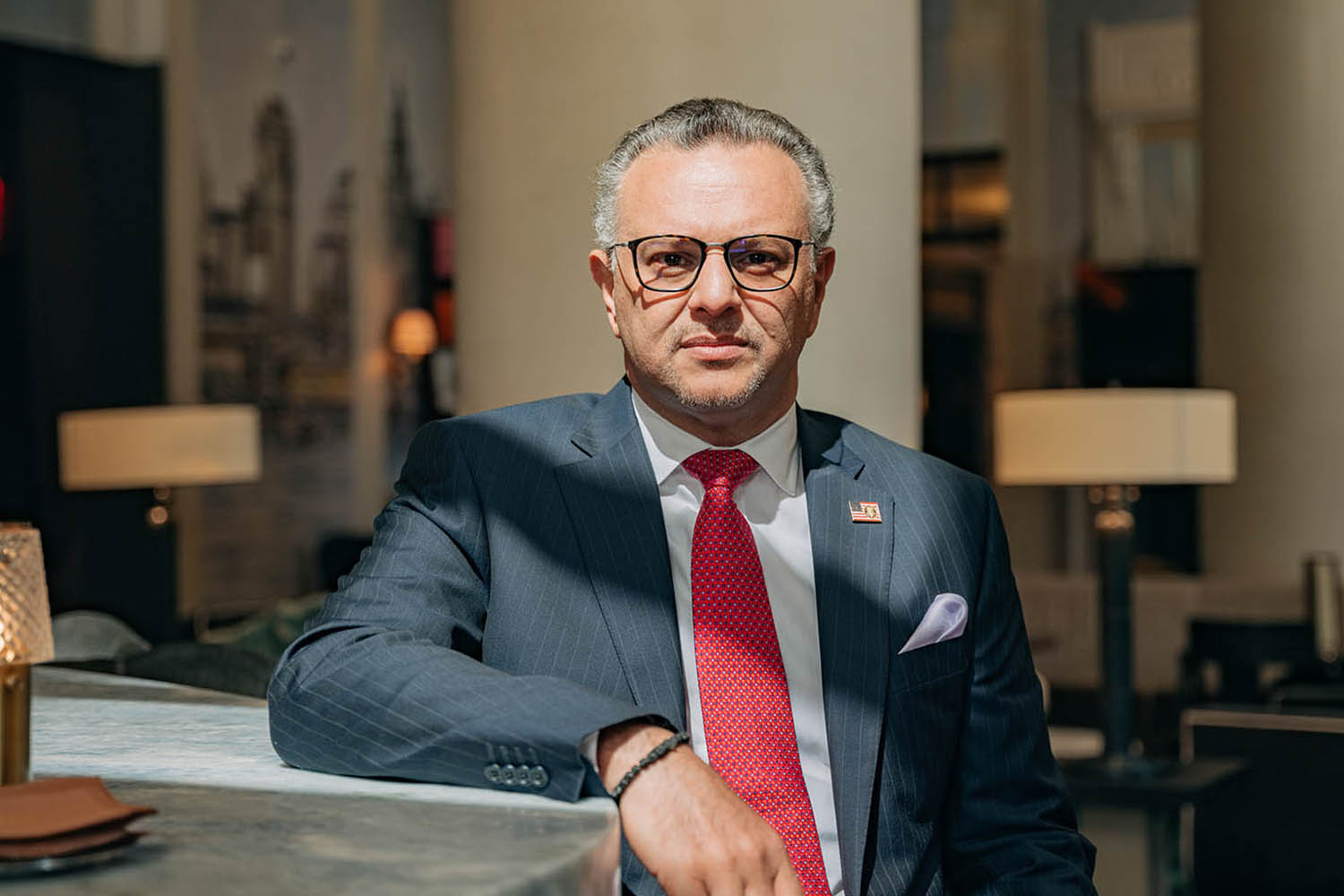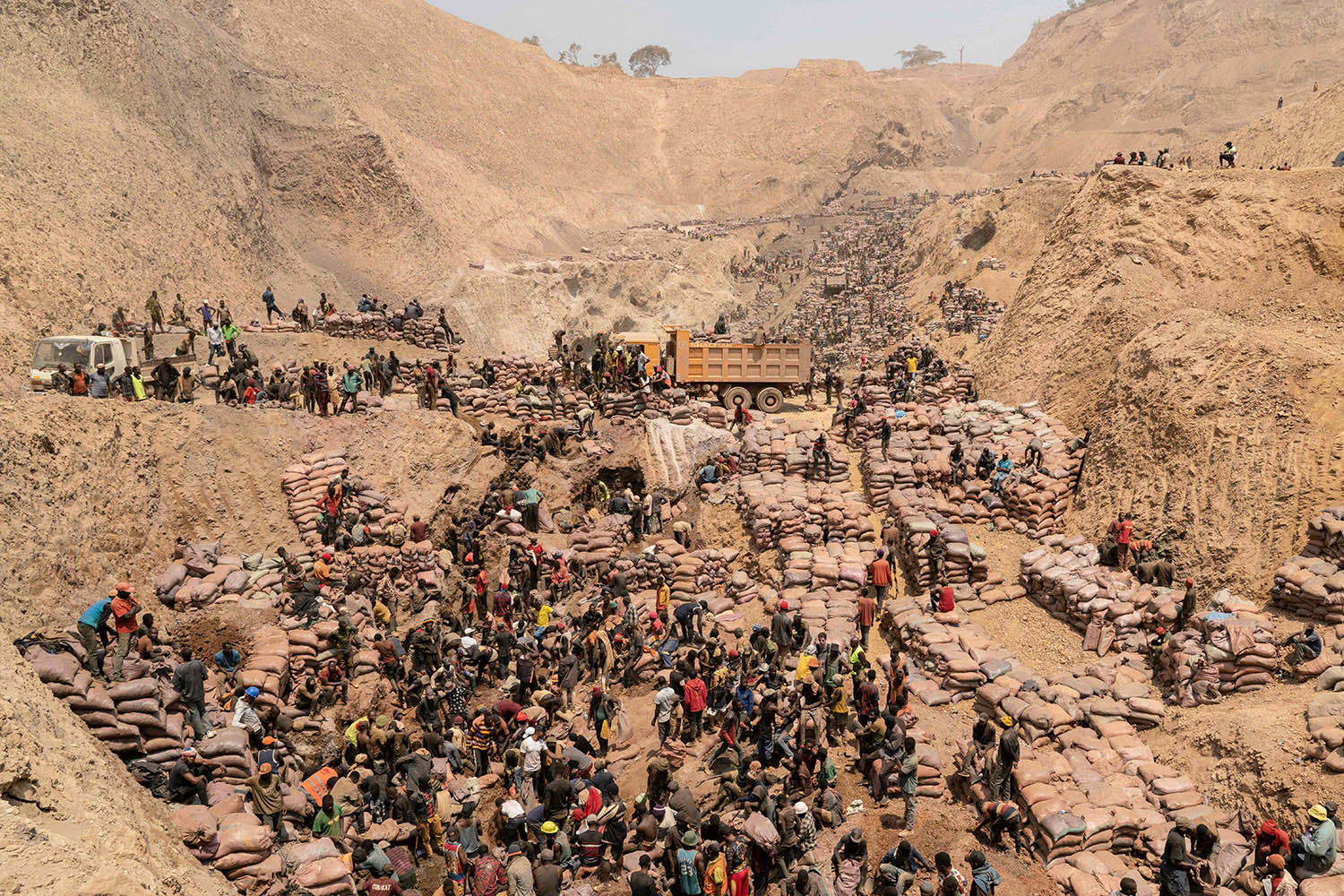As Donald Trump finally clinched a minerals deal with Ukraine last month, his officials were thrashing out another, potentially far more lucrative agreement that could unlock trillions of dollars of mineral wealth in Central Africa.
The talks centre on the Democratic Republic of the Congo and Rwanda, aimed at ending nearly three decades of bloody conflict. As part of the discussions, both countries have tentatively agreed to develop their mineral supply chains “in partnership with the US government and US investors”.
A final peace deal between Rwanda and Congo, brokered by the father-in-law of President Trump’s daughter, Tiffany, could be signed by early June. Both countries will also sign separate bilateral minerals agreements with the US. The details, though, are hazy. Congo’s foreign minister, Thérèse Kayikwamba Wagner, told The Observer the plans are “still in elaboration”. “We’re all working towards the same objective, but it’s going to take time to make sure we have an agreement that meets the expectations of all parties,” she said.
If successful, the fruits of these deals could dwarf the economic benefits the US will reap from its agreement with Ukraine. Although maps show Ukraine possessing abundant supplies of materials essential for producing wind turbines, batteries and lasers, these are based on outdated Soviet-era surveys.
By contrast, Congo is a treasure trove. In addition to vast deposits of copper, diamonds and gold, it has minerals crucial to the tech world, such as lithium and tantalum. Among the most important is cobalt, a lustrous metal added to nearly every rechargeable battery, from iPhones to Teslas. Congo produces roughly 78% of the world’s cobalt. In total, it has more reserves than the rest of the world combined. Currently, nearly all of it goes to China for processing.

After Beijing banned the export of raw earths to the US last month in retaliation for tariffs, breaking China’s stranglehold on this crucial supply chain and others has shot towards the top of Trump’s to-do list.
Outsiders have scrambled over Congo’s riches for centuries. Under King Leopold II, Belgian colonialists exploited its rubber and ivory. In the 1960s, the US helped a military officer, Mobutu Sese Seko, topple its first democratically elected president to secure Congo’s uranium for its nuclear warheads. Mobutu gutted the state coffers to enrich himself before being overthrown by rebel leader Laurent-Désiré Kabila. Under Kabila and later his son, Joseph, Congo continued to be a byword for corruption.
Since the 1990s, Congo’s vast eastern regions have been gripped by a devastating conflict featuring a constellation of rebel groups that has killed hundreds of thousands and created one of the world’s worst humanitarian crises. In large part, it has been fuelled by the area’s mineral riches.
For Congo, a deal with the US has obvious benefits. In the east, it has been fighting a losing battle against the rebel group known as M23, that is backed by Congo’s far smaller, but more powerful neighbour, Rwanda. Though Kigali denies it, United Nations investigators estimate that Rwanda has sent 4,000 troops into Congo to support M23.
Earlier this year, after M23 overran a large chunk of eastern Congo and seized Goma, a major city, Congo’s President Félix Tshisekedi wrote to Trump offering his own Ukraine-style security-for-minerals deal: if the US pressured the Rwandan-backed rebels to withdraw, his government would grant US companies rights to extract and process his country’s minerals.
Newsletters
Choose the newsletters you want to receive
View more
For information about how The Observer protects your data, read our Privacy Policy
Lobbyists working for Congo have also been promoting the idea on Capitol Hill, where its rival Rwanda has long held more influence.
“We cannot deny the US has been one of Rwanda’s core donors over the past decade,” said Wagner. “Our hope is that, through this [deal], the US will use its influence to remind Rwanda of its obligations, especially in the field of international law, of respecting our boundaries, sovereignty and territorial integrity.”
Rwanda claims it faces threats from Hutu militias in Congo, remnants of the groups that carried out the 1994 genocide. However, the Congolese allege Rwanda backs M23 and other rebels to steal Congo’s mineral wealth, alleging that Rwanda exports far more minerals than it appears to mine.
The man driving the talks is Trump’s new Africa fixer, Massad Boulos, who was only appointed in April. He is a Lebanese businessman with dealings in Nigeria and is the father-in-law of Trump’s daughter, Tiffany, 31. Since his appointment, Boulos has been shuttling across central Africa and using Qatar as a base for talks.

“The idea is to ensure the US will have access to the minerals it needs, independent of any political decision China might have about its own processing,” said a senior US Department of State official. “We are going like gangbusters to try and see if we can drive this across the finish line.”
The official said the Trump administration hoped to strike “structured deals that involve private equity with some resources of the US government.”. The US has ruled out putting boots on the ground. Instead, it believes the arrival of American investors will persuade all sides that peace is more profitable than war.
The talks already appear to be bearing fruit. Erik Prince, a prominent Trump supporter and military contractor, has won a deal to help Congo secure and tax its vast mineral wealth. On Wednesday KoBold, a California startup backed by Bill Gates and Jeff Bezos, secured rights to a massive lithium site, where it will invest more than $1bn.
Congo has also sent three American convicts, jailed for life for their role in a failed coup last year, to the US to serve their sentences at home, while Rwanda is exploring the possibility of receiving illegal migrants expelled from the US. Meanwhile M23 has agreed to a ceasefire and withdrawn from the tin mining town of Walikale, an apparent goodwill gesture that has allowed a Canadian-listed firm to resume operations.
The deals face stiff hurdles, however. Congo’s corruption has made American firms subject to strict anti-bribery laws wary of investing. It also has a track record of not honouring contracts, which politicians have abruptly cancelled and handed to rival firms.
Persuading Rwanda that halting support for M23 is in its interests will be hard work.
The Luanda process, a Biden-backed initiative between Congo and Rwanda, failed to get anywhere despite more than two years of talks, noted Richard Moncrieff at the International Crisis Group. Moncrieff sees a “performative aspect” to Trump’s desire to strike “a quick deal” in a region where Biden failed, especially in a region where “people simply don’t respect pieces of paper”. “Whether the fighting stops depends on a whole load of calculations and pressures on both sides at the right moments,” said Moncrieff. “There’s nothing to suggest to me we have this alignment at the moment.”
Photographs by Junior Kannah/AFP, Glody Murhabazi/AFP and Jeenah Moon/Getty

